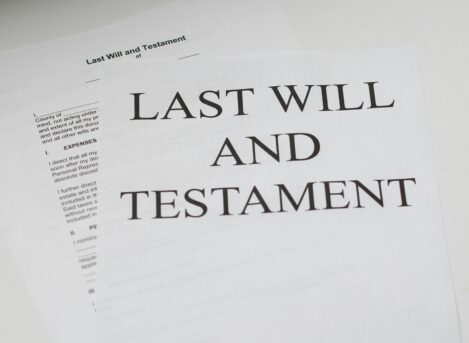If you’re a small business owner, you probably don’t have a minute to spare in your busy workday, especially if you’re struggling to recover after a turbulent 2020. Estate planning may be one of the last things on your mind.
However, not only can estate planning help ensure that your objectives are met should you die unexpectedly or become disabled, it may also protect the business you’ve spent years building. Also, if it suits your purposes, an estate plan can provide a smooth transition to the next generation.
Start with the basics
As with most individuals, a comprehensive estate plan should be supported by a core of several key documents. For starters, a basic will divides up your assets among designated beneficiaries, including your business interests, as well as meeting other objectives. Without a will or having assets otherwise titled, your business and other assets will be distributed under the prevailing laws in your state, regardless of your wishes.
In addition, adopt a power of attorney for someone to manage your affairs in the event you become incapacitated. This “attorney-in-fact” can conduct business transactions. The power of attorney should be complemented by health care directives providing guidance if you can’t make medical decisions for yourself. (See “Understanding the terms of health care directives.”)
Customize your estate plan to accommodate your business needs. For instance, in some states a spouse won’t be able to access business assets without court approval. To avoid this result, you might place assets in a trust you’ve established as legal owner.
Consider tax implications
If you own significant business assets, consider maximizing the federal estate tax breaks currently on the books. This includes the use of the unlimited marital deduction and the generous federal gift and estate tax exemption. For 2021, the exemption shields assets valued up to $11.7 million.
Be aware that certain states also impose their own state or inheritance tax. Note that inheritance tax paid by family members such as your children comes out of their own pockets — not the estate’s.
Fortunately, you can minimize taxes on both the federal and state levels by using multiple trusts or setting up a family limited partnership (FLP). With a tax-favored FLP, the assets are removed from your taxable estate. Finally, be aware of tax consequences for ultimate distributions of retirement plan accounts to designated beneficiaries.
Succeed through a succession plan
In many cases, a business owner’s fondest dream may be to transfer ownership to his or her children, who will continue to run the operation when the owner retires. A succession plan can provide a smooth transition of power and be used in the event of an unexpected death of an owner.
Typically, a succession plan will outline the structure of the business going forward and prepare for the eventual sale of the business. Make sure that the plan is memorialized in writing. Identify training opportunities and special compensation arrangements for your successors. One section of the plan should include all the financial details reflecting assets, liabilities and current value.
Coordinate your succession plan document with your will and the other estate planning documents discussed above.
Resolve sensitive family issues
It’s not unusual for a family to face internal challenges and struggles as the entrepreneur reaches retirement age. Unfortunately, leaving one sibling out in the cold while another is anointed to run the business can create hard feelings. Or giving someone a secondary role may cause conflicts.
One common estate planning strategy is to attempt to “even things out.” For example, say for simplicity that you own a business valued at $5 million and you have $5 million in other assets. You have named one of two children to succeed you as the business owner. In this case, you can give the successor child the $5 million in business assets and leave the remaining $5 million in assets to the other child.
Of course, you may run into other intrafamily squabbles. And don’t forget to factor your extended family — such as the spouses of your children — into the equation.
Final words
Now is the time to get potential issues out into the open. Have a frank discussion with the parties who will be affected. Your estate planning advisor can help shape a plan to meet your unique circumstances as a business owner.
SIDEBAR: Terms of a buy-sell agreement
Do you own a business with one or more co-owners or partners? A buy-sell agreement may avoid legal complications when a co-owner or partner passes away or is disabled.
A buy-sell agreement establishes who can buy a business, the main terms of the agreement and the basis for determining a price. For instance, with a cross-purchase agreement, a surviving owner is entitled to make the purchase. An entity-purchase agreement provides the means for selling your interest back to the company.
Typically, a buy-sell agreement is funded with life insurance on the lives of the owners and partners.






